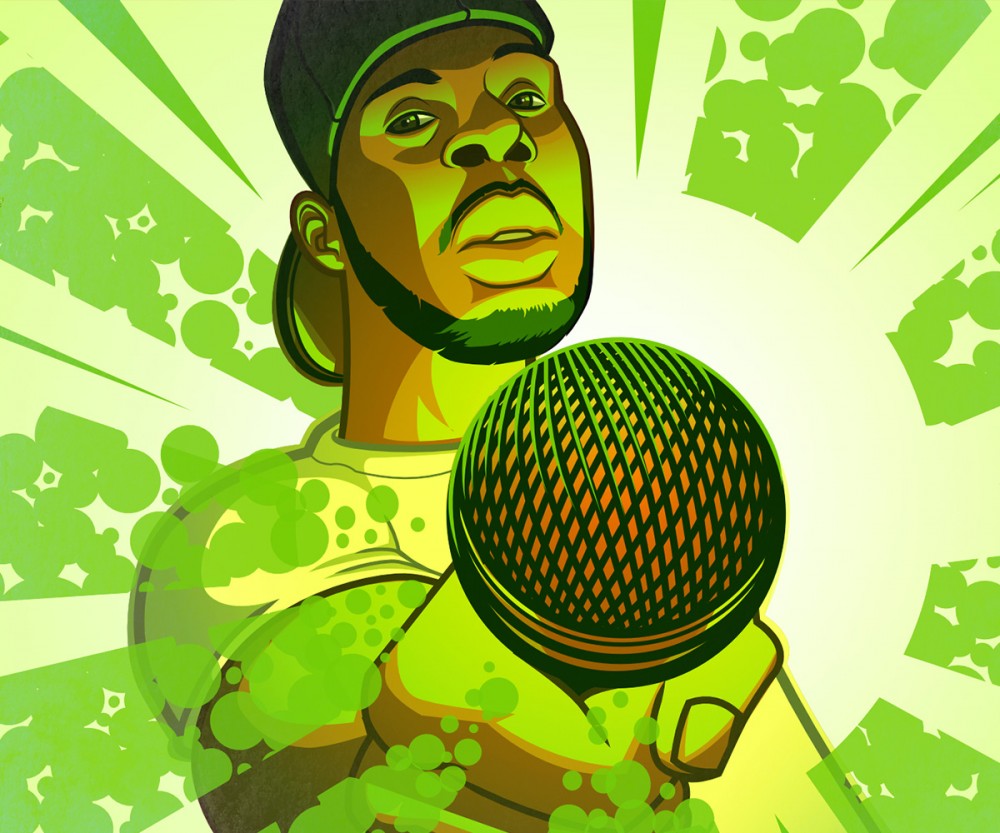For Dilla Day 2022, we celebrate the deceptively deep catalog of daggering wordplay from J Dilla, an innovative producer who demanded to be taken seriously as a rapper.
By 2001, J Dilla was arguably at the height of his power and influence as a producer. Already considered the spiritual and sonic center of The Soulquarians, The Ummah, and a contentiously-named sub-sector of R&B, J Dilla was firmly, albeit reluctantly, the pillar of a movement in Black music striving to simultaneously expand its foundations and the scope of its trajectory. But at a time when hip-hop’s most prestigious musicians, crews, and MCs were clamoring to claim him as their own, Dilla was intensely focused on breaking out from behind the boards as a rapper in his own right.
And he almost got the chance. Not long after the release of “Fuck The Police,” his first single as a solo artist with no affiliations to any collective, Dilla signed with MCA for a two-album deal. Sadly, the label pulled out, scrapped the deal, and folded within the year, taking Dilla’s mainstream debut down with it. Thanks to a benevolent storage unit diver, that project was eventually released in 2016 as The Diary. But critics weren’t exactly glowing over his ability to rap as he was making the case. Though his verses were stitched into the cloth of Slum Village‘s seminal Fan-Tas-Tic Vol.1 and Fan-Tas-Tic Vol. 2, as well as standout tracks on Welcome 2 Detroit and Common‘s Like Water For Chocolate, the pioneering Detroit producer had grown keenly aware of how he was being written off as the frontman of his own work. By 2003, Dilla’s frustrations boiled over on Jaylib’s Champion Sound, where he directs the entire second verse of “The Mission” at journalists panning his command of the mic.
Undeterred, the last few years of Dilla’s career were filled with redemptive efforts. Nine months after dropping Champion Sound with Madlib, the producer fired back at MCA with the self-released solo project, Ruff Draft, comprising some of the sharpest and most daggering bars in his catalog. There’d be one-offs with Frank-N-Dank, Platinum Pied Pipers, SA-RA, and a handful of other artists who spotted in Dilla’s rapping the rhythmic and melodic quirks that made him a wholly unique and wildly coveted composer. And perhaps, above all, they were all able to acknowledge just how much love he had for the craft, even if he wasn’t striving for profundity with every syllable.
Many consider the narrative-defining tragedy of J Dilla’s run to be how his life was cut short before he got to be the face of his innovations. But at least one writer would like to consider just crushing it must have been for a person to be so prolific and singular in a discipline that no matter how many times they proved to have interests and aptitude beyond it, they were simply never taken seriously for anything else.
As we celebrate the genius of a generational music mind and the vast body of work they’ve left with us, it’s easy to get lost in the bootleg beat tapes and instrumental albums proper that have shaped his living and posthumous legacy. But if you really want to raise it up for Dilla, make sure you pay as much attention to his words.
And if you’re looking for a point of entry, we’ve created a potent sequence of J Dilla’s best rap performances to get you started on the path.
__
Graphic: @popephoenix for Okayplayer

